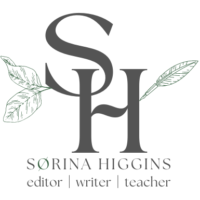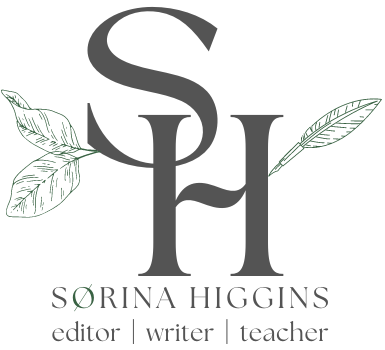Greetings and salutations. The Wyrd Wymen of Wyrdhoard are offering some upcoming training sessions and classes for Writers. Or should that be Wryters? To begin with, here is the schedule for wyrkshops led by Dr. Sørina Higgins. You are invited to register for one, two, some, or all. Please spread the word to your wryterly friends, too. All times are U.S. eastern. Contact Sørina for more information.
Monday, Feb 5th, @ 6pm — Workshop #1: Layering Significance
What sets “literary” fiction apart from “popular” fiction? What makes a book survive the many tests of time, to be read and reread by generations, while others sell swiftly one summer, then disappear? One characteristic of enduring literature is its stratigraphy: The many layers of meaning carefully constructed, their interactions balanced, that affect readers with a subtle sense of depth. In this workshop, we’ll look at many classic examples, then try out exercises to begin working strata into our own fiction. Please bring either an idea for a story you’d like to write or a draft of some piece of fiction you’re working on.
Friday, Feb 23rd @ 4pm — Workshop #2: Conquering Common Grammatical Errors
Contrary to the popular notion that writers should start with a Big Idea, then work on a piece’s structure, and only at the end of the drafting process (if they have time), finally turn to the little things like spelling, grammar, and punctuation, I believe that all great writers begin by mastering the fundamentals. Just as musicians practice scales, so writers must daily practice good diction, syntax, and stylistics if they are to succeed. Join me to talk about overcoming some of the most common problems in amateur writing today: dangling and misplaced modifiers, mixed metaphors, run-ons, and errors of parallelism.
Please bring 3 of your own sentences that you think could use tidying up.
Cost: $35. Register here.
Monday, Mar 25th @ 6pm — Workshop #3: Giving Voice to Characters
Just as various people speak differently from one another in real life, so our fictional characters develop their individual “voices” in our stories or novels. Even in poetry, biography, memoir, and other nonfiction genres, the individuals who people our writing need to sound distinct, with writing styles that capture something of their personalities. Using examples from literature, we’ll talk about how to develop a distinct speaking style for each of the characters in our works.
Please bring: (1) two or three examples of great character speeches from literature, just a sentence or two each; (2) a 250-word-max selection from your own writing; (3) a two-sentence description for each of the characters in your selection.
Cost: $35. Register here.
Friday, Apr 26th @ 4pm — Workshop #4: Crafting Atmosphere
What kinds of stories do you like? What settings? What *atmosphere* appeals to you the most? In his essay “On Stories,” C.S. Lewis writes that the atmosphere of a story is even more important than its plot or characters. He compares this element of writing to music, which can evoke a mood quite easily with major and minor harmonies, modes, instrumentation, and more. In writing, we can use sensory descriptions (especially adjectives) carefully to craft the perfect ambience; we can describe not only the people and their actions but also the setting, weather, colors, smells, and overall feeling to provoke a memorable mood.
Please bring: (1) two or three examples of great atmospheric description from literature, just a sentence or two each; (2) a 250-word-max mood-setting selection from your own writing; (3) a two-sentence description of the feeling you want to evoke.
Cost: $35. Register here.
Monday, May 27th @ 6pm — Workshop #5: Revising Ruthlessly
Congratulations! You have a complete draft! Now you should sit back, relax, have a celebratory drink, and rest. Then when you’ve had a breather, you can really start writing. Wait, what? Yes. I’m serious: The work of great writing begins after creation of the draft. Revision is more important than vision, because that’s when really good authors carve the final piece out of the massive mess of the draft. Amateur authors stop after drafting; great writers know they have yet to do the really hard work that will result in something worthwhile. In this workshop, I’ll present strategies, tips, and techniques for revising ruthlessly, including both technical tools you can employ and mental disciplines you can cultivate. You are welcome to attend whether you have a completed draft of anything or not!
Please bring a sentence of your own writing, preferably the first sentence of something (of a chapter, story, novel, paragraph, section, etc.). If you do have a completed manuscript, have that handy in a word doc or google doc.
Cost: $35. Register here.


Leave a Reply